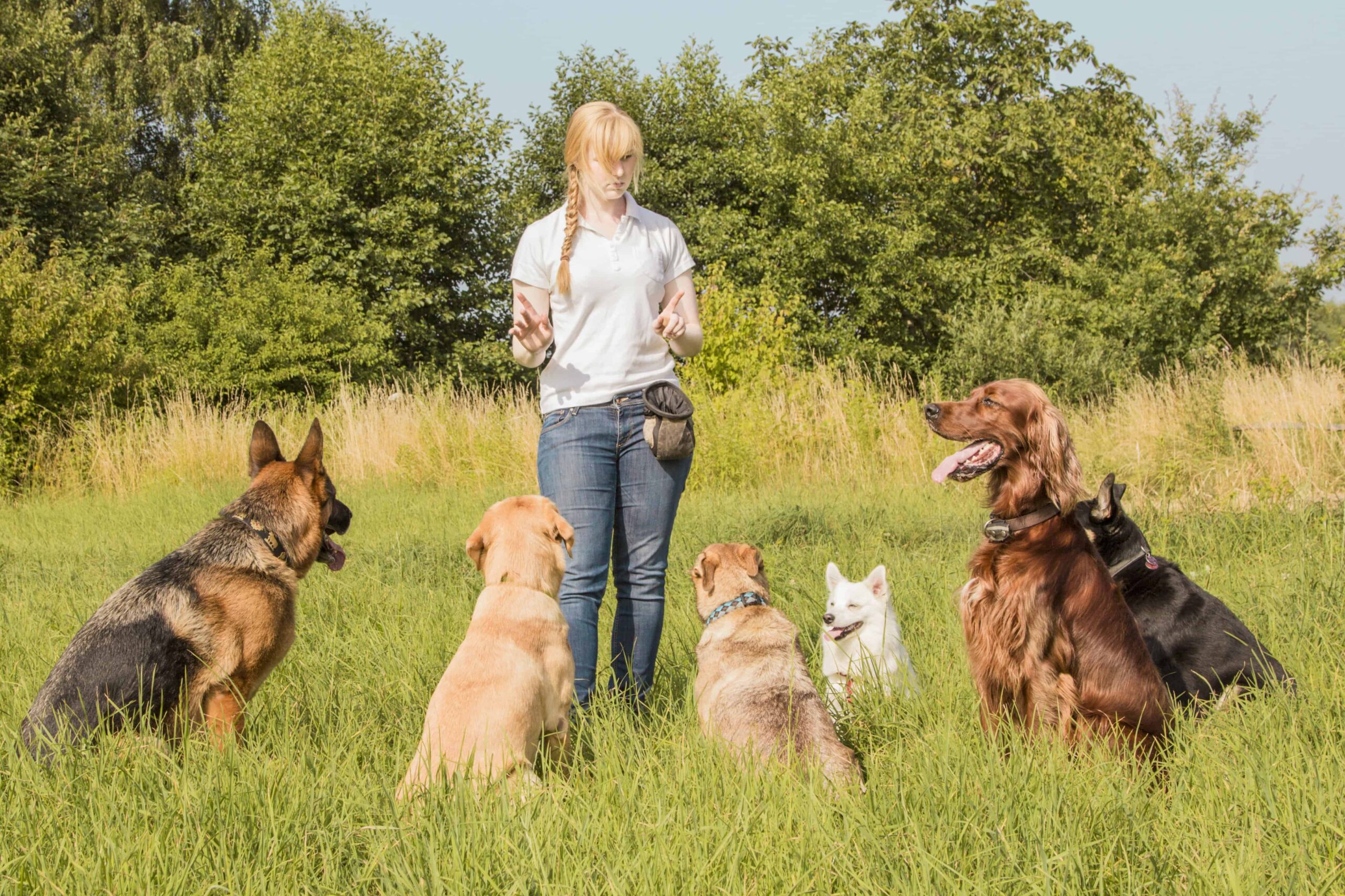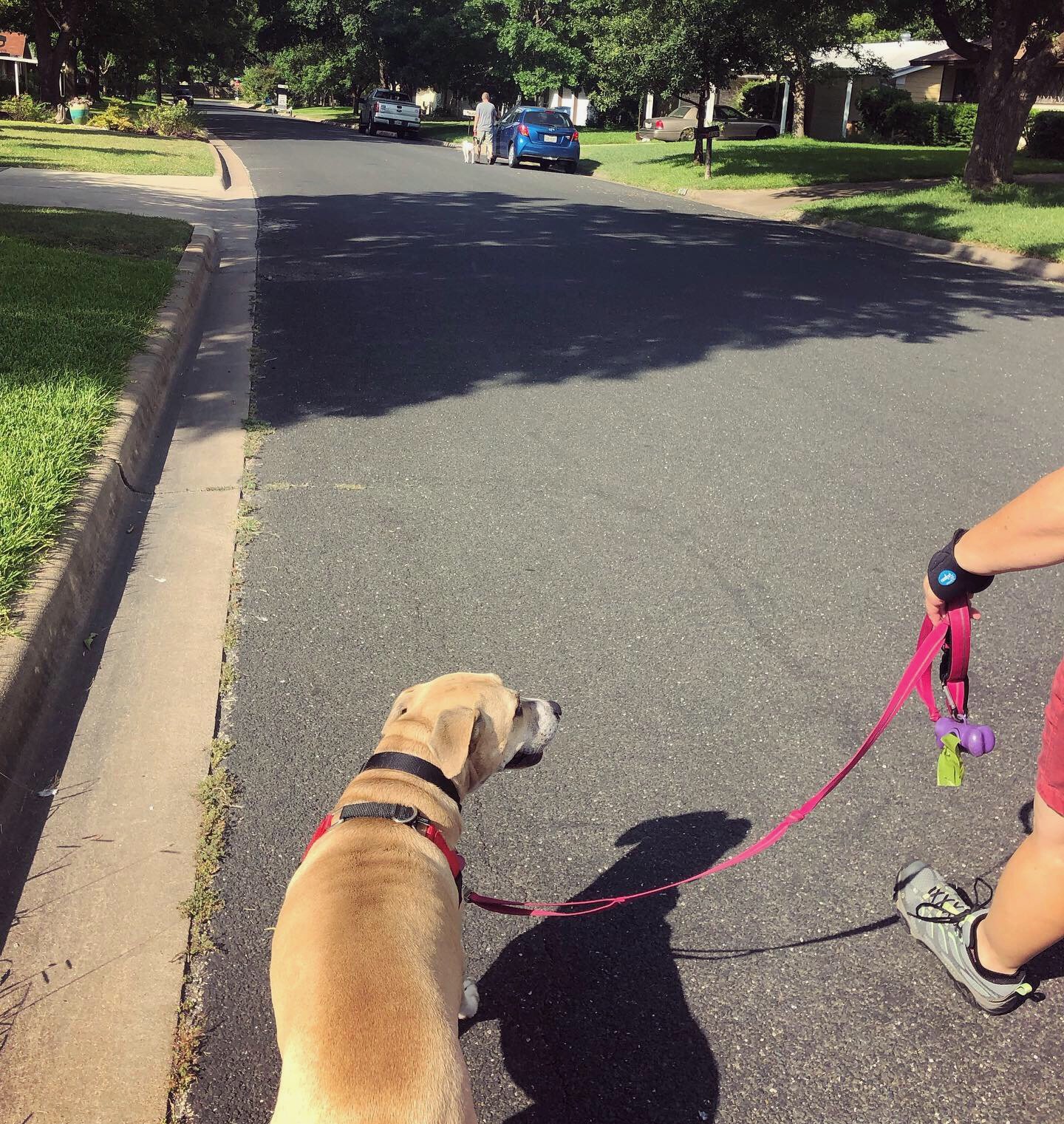Dog Training Charlotte NC: Your Course to a Well-Behaved Dog
Dog Training Charlotte NC: Your Course to a Well-Behaved Dog
Blog Article
Unlock Your Pet's Prospective: Proven Pet Dog Training Approaches for Success
Effective pet training is a nuanced process that hinges on comprehending canine habits and using medically backed approaches. By integrating favorable reinforcement, developing clear commands, and focusing on socializing, pet dog owners can cultivate an efficient connection with their pet dogs.
Understanding Pet Dog Behavior
Recognizing pet actions is essential for effective training and cultivating a positive relationship in between pets and their owners. A comprehensive understanding of canine body language, vocalizations, and social communications is important for identifying their emotions and demands. Dogs connect largely through non-verbal hints; for instance, a wagging tail may show enjoyment, while pinned ears can indicate fear or submission.

Furthermore, environmental variables play a substantial role fit a pet's habits. Changes in regular, brand-new surroundings, or the visibility of strange people can bring about anxiety or anxiousness in pet dogs. Identifying these triggers allows proprietors to minimize negative responses and create proper training strategies.
Ultimately, a deep understanding of canine behavior lays the structure for effective training approaches, enhancing both habits and the total bond between the dog and its proprietor. dog training charlotte nc. This expertise is vital for promoting a well-adjusted, pleased canine companion
Positive Support Methods
Effective training counts heavily on favorable reinforcement techniques, which have actually been shown to yield substantial outcomes in forming preferred behaviors in canines. This technique involves rewarding a pet dog for displaying certain behaviors, thereby boosting the possibility that these habits will certainly be duplicated. Rewards can take different types, consisting of deals with, praise, toys, or play, depending upon what motivates the individual dog.

It is important to progressively eliminate rewards as the pet discovers the habits, transitioning to recurring support. This technique preserves the actions in time while protecting against dependence on consistent benefits. By focusing on positive support, instructors can grow a trusting connection with their pet dogs, promoting a healthy and balanced and participating training environment that boosts general obedience and performance.
Developing Constant Commands
A basic element of successful pet dog training is the facility of regular commands. Uniformity in commands is important for reliable communication in between the fitness instructor and the dog. When commands are consistent, pet dogs find out to associate particular words with preferred actions, which accelerates the training process and improves understanding.
To establish constant commands, it is vital that all member of the family use the same terms and gestures. As an example, if one person makes use of "sit" while an additional claims "take a seat," it can create complication for the canine. Select clear, distinctive words for commands and make certain every person associated with the pet's training follows these options.
Furthermore, repeating is key. Enhance commands with constant practice, guaranteeing that the canine obtains ample opportunities to react properly. When a dog successfully follows a command, immediate favorable reinforcement ought to comply with. This can be in the form of treats, appreciation, or playtime, solidifying the link in between the command and the action.
Finally, be individual. Establishing constant commands takes time and initiative. With dedication and clarity, you will certainly aid your pet dog establish a strong understanding of assumptions, inevitably bring about a well-behaved companion.
Socializing and Exposure
Socializing a canine is vital for promoting a well-adjusted and certain buddy. This process involves subjecting your dog to a range of settings, individuals, and other animals to develop their social skills and adaptability. Early socializing, preferably in between the ages of three to fourteen weeks, is critical, as it lays the groundwork for a canine's future habits.
During socializing, aim to provide favorable experiences in different settings, such as parks, active roads, and homes with other pet dogs. Introduce your pet to different stimulations, consisting of sounds, views, and scents, making sure that each experience is rewarding. This direct exposure helps minimize worry and anxiety, paving the means for an extra durable dog.
Taking part in controlled team play sessions with other pet dogs can local dog grooming courses additionally improve social abilities, instructing your animal suitable communications and boundaries. Constantly monitor your canine's convenience level during these experiences, slowly raising direct exposure as their confidence grows. Remember, the goal is to develop an all-round pet that thrives in diverse scenarios, advertising a harmonious partnership with both people and various other pets. Focusing on socialization will dramatically add to your pet dog's overall joy and behavior throughout their life.
Conquering Common Educating Difficulties

Another regular issue is distraction. Pet dogs might struggle to focus in unknown or active settings. Gradually desensitize your pet dog to interruptions by beginning training in a peaceful environment and gradually introducing more stimuli as they come to be skillful (Dog training). Favorable reinforcement techniques, such as deals with and appreciation, can preserve motivation and focus.
In addition, behavioral concerns like jumping or extreme barking can end up being frustrating. Address these by teaching different habits, such as resting comfortably when welcoming guests. Consistency and persistence are vital; reinforce preferred actions continually and prevent abuse, which can result in complication.
Lastly, identify that each canine is one-of-a-kind, and training timelines might vary. Dressmaker your technique to your dog's private demands, and seek expert support if necessary. With determination and the right approaches, getting rid of these challenges can bring about a trained, happy canine buddy.
Verdict
To conclude, unlocking a canine's possible necessitates a comprehensive method that includes an understanding of canine actions, the application of favorable support techniques, and the facility of constant commands. check this site out Early socialization and direct exposure to diverse environments better improve a dog's adaptability and confidence. By addressing usual training challenges with customized techniques and patience, a participating and unified connection in between pet dog and trainer can be promoted, eventually causing a mannerly companion with the ability of thriving in numerous situations.
Effective pet dog training is a nuanced procedure that pivots on understanding canine behavior and employing medically backed approaches.Understanding dog behavior is crucial for effective training and promoting a favorable relationship in between pet dogs and their owners.Reliable training counts greatly on positive support strategies, which have actually been revealed to produce significant results in shaping desired behaviors in dogs. When commands are uniform, canines find out to connect details words with preferred behaviors, which accelerates the training procedure and boosts understanding.
In conclusion, unlocking a canine's prospective necessitates a comprehensive strategy that integrates an understanding of canine behavior, the application of positive reinforcement strategies, and the facility of constant commands.
Report this page